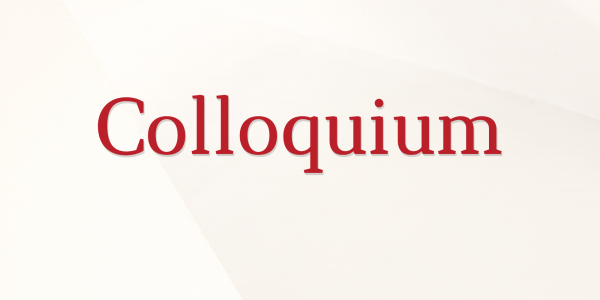Colloquium: "Vestibular Perception and Its Contents"
Abstract: Philosophers have largely ignored vestibular perception. This gap in the literature is unfortunate as vestibular perception constitutes a rich form of perceptual consciousness that exhibits unique properties not found in other sense modalities. Furthermore, an account of vestibular perception can provide specificity on the differing phenomenological profiles that figure into vestibular illness diagnoses. In this talk, I argue for two theses. First, I argue that vestibular perception makes contributions to phenomenal consciousness. This argument takes the form of both a negative argument, by rejecting the two common reasons for denying vestibular phenomenology, and a positive argument, using the method of phenomenal contrast. Second, using the same method, I argue that a particular content occupies vestibular perceptual experiences. I suggest that vestibular perceptual experiences represent orientational relations between structures of the head and the direction of gravitational pull. By looking at the format of vestibular representations, I argue that vestibular perceptual experiences do not represent sensory individuals. Thus, the vestibular representation of orientational relations cannot be reduced to relational features attributed to individuals. Vestibular perceptual experiences thus involve perceiving orientational relations themselves. This result demonstrates, against common opinion, that perception does not constitutively involve attribution of features to individuals.

